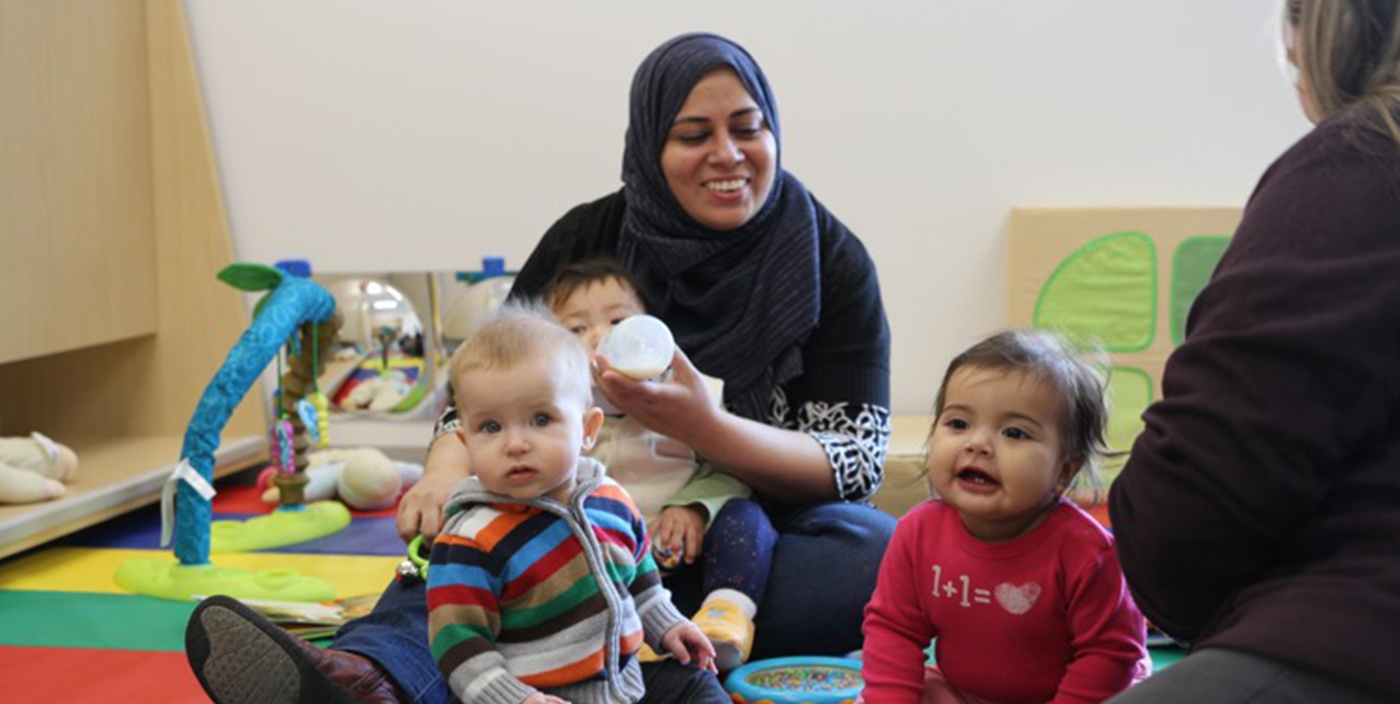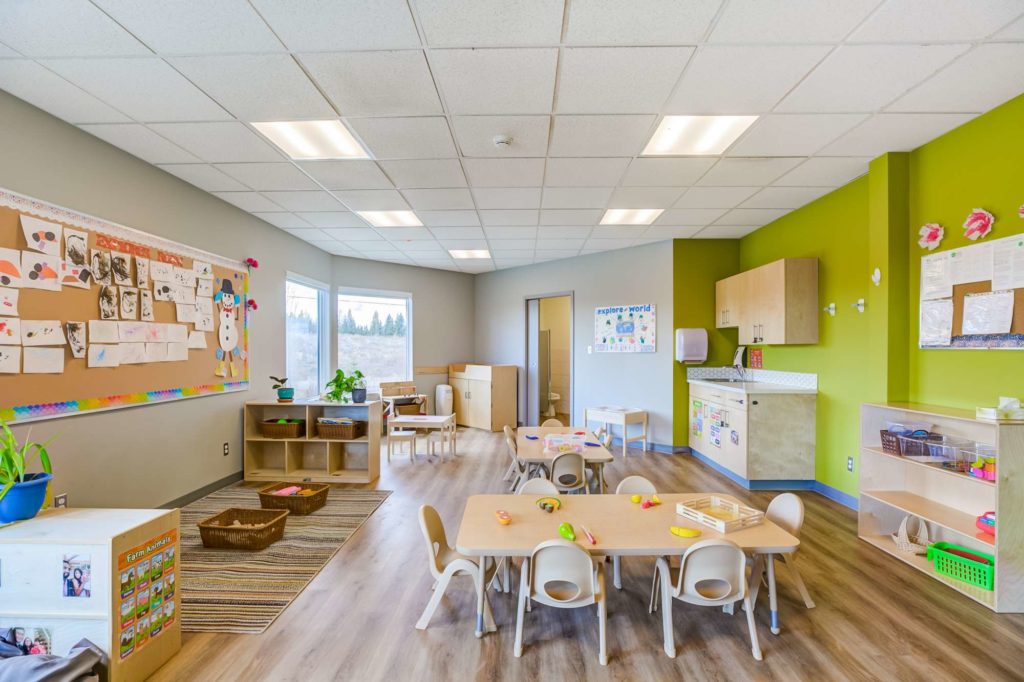Discover the most effective Baby Daycare Near Me: Safe and Nurturing Environments
Discover the most effective Baby Daycare Near Me: Safe and Nurturing Environments
Blog Article
Understanding the Relevance of Day Care for Your Young child's Social Advancement and Discovering Knowledge Through Involving Tasks
The relevance of childcare in shaping a toddler's social development and understanding can not be overemphasized, as it offers a structured atmosphere loaded with interesting tasks that are essential for early development. As we check out the diverse advantages of childcare, one should think about how these fundamental experiences influence a child's future social interactions and overall advancement.

Advantages of Social Interaction
Social interaction plays a vital role in the developing trajectory of kids, working as a structure for important social abilities. Engaging with peers permits young children to exercise interaction, discover to express their feelings, and establish compassion. Via shared play and participation, they start to recognize social standards, such as taking turns and sharing, which are crucial components of effective social partnerships.
In addition, social communications add to cognitive development. As toddlers connect with their peers, they improve their language abilities, increase their vocabulary, and boost their capability to express sensations and thoughts. This exchange of ideas promotes crucial thinking, as children learn to work out, resolve issues, and browse conflicts.
In addition, social communication promotes psychological law. Direct exposure to various social situations helps toddlers recognize and manage their feelings, inevitably leading to greater durability and flexibility. The capacity to create attachments and relationships additionally enhances their sense of belonging and self-esteem, which are essential for total well-being.
Importance of Engaging Activities
Involving tasks are necessary for fostering a stimulating atmosphere that boosts young children' social growth. These tasks not only captivate children's interest yet also promote active participation, allowing them to discover their environments creatively. Through play-based understanding, toddlers establish essential skills such as problem-solving, cooperation, and empathy, all of which are crucial for building healthy partnerships with peers.
Taking part in engaging activities, such as group video games, art projects, and interactive narration, urges kids to express their sensations and ideas. This expression is important for emotional knowledge and assists them comprehend the viewpoints of others. When toddlers engage in these tasks together, they learn to bargain roles, share resources, and work together, which are essential elements of social interaction.
On top of that, a well-structured atmosphere that includes stimulating and diverse activities assists in maintaining kids encouraged and concentrated. This motivation cultivates a love for discovering and exploration, laying the foundation for future academic experiences. Inevitably, involving activities in daycare setups are critical in shaping social abilities, preparing toddlers for effective interactions beyond the class, and nurturing their general growth during these formative years.
Developing Interaction Skills
Effective interaction abilities are vital for young children as they browse their early social interactions. In a childcare setting, kids are subjected to varied social circumstances that encourage spoken and non-verbal communication. Talking with caregivers and peers cultivates language development, allowing young children to reveal their emotions, ideas, and needs extra successfully.

Moreover, childcare settings supply chances for toddlers to imitate and observe communication designs of their peers and grownups. This observational understanding is crucial as kids notice social hints, tone, and body language, which are necessary elements of effective interaction.
Cultivating Self-reliance and Confidence
As young children refine their communication abilities, they concurrently begin to discover their freedom and construct confidence in social setups (toddler daycare near me). Daycare supplies an organized atmosphere where children can involve in various activities that motivate freedom. From selecting their own activities to taking part in team jobs, these experiences empower young children to make choices and express themselves
In a childcare setting, youngsters are commonly presented with chances to fix troubles independently, whether it's identifying just how to share playthings or fixing problems with peers. This promotes crucial reasoning and advertises self-reliance. Furthermore, caretakers sustain this development by offering favorable reinforcement and advice, aiding youngsters to browse social interactions with self-confidence.

Group tasks, such as cooperative games or collaborative art tasks, promote team effort and educate kids the relevance of working with each other. Through these communications, youngsters learn to interact their ideas and feelings, further boosting their self-esteem and social abilities.
Eventually, fostering self-reliance and confidence in day care not only prepares young children for future social settings but additionally lays the foundation for a resilient frame of mind, furnishing them with important life abilities as they remain to learn and expand.
Building Lifelong Understanding Foundations
A strong foundation for lifelong learning is essential for young children, as their early look at these guys experiences shape their attitudes towards education and learning and curiosity. Daycare settings play a crucial function in this developmental phase by providing structured chances for expedition and interaction. Engaging tasks, such as group play, arts and address crafts, and interactive narration, promote cognitive advancement while encouraging social interaction.
Through these experiences, young children find out crucial skills such as problem-solving, communication, and teamwork. They are introduced to the concept of learning as a pleasurable, collaborative procedure instead of a chore, which cultivates a favorable attitude in the direction of education. Direct exposure to varied point of views and peer interactions in childcare setups improves psychological intelligence, promoting empathy and durability.
Caregivers and instructors also add dramatically to building this structure by modeling inquisitiveness and interest for knowing. By urging inquiries and facilitating discussions, they develop an environment where youngsters really feel secure to express themselves and explore originalities. Eventually, the mix of helpful partnerships and engaging activities in daycare setups prepares for a long-lasting love of knowing, outfitting toddlers with the abilities and way of thinking required for future scholastic and personal success.
Verdict

The value of day care in forming a young child's social advancement and knowing can not be overstated, as it uses an organized atmosphere filled with interesting tasks that are pivotal for early development.Social interaction plays an essential role in the developmental trajectory of young children, serving as a More Info structure for vital social skills. When young children involve in these tasks with each other, they learn to discuss roles, share resources, and team up, which are essential aspects of social communication.
Ultimately, involving tasks in day care settings are essential in shaping social abilities, preparing toddlers for successful communications past the classroom, and supporting their general advancement throughout these formative years.
Eventually, the benefits of appealing tasks in day care setups play a considerable duty in preparing toddlers for future social communications and challenges. toddler daycare near me.
Report this page